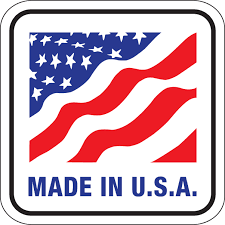100% Made in USA? Too Expensive to Afford
As President Donald Trump doubles down on his push for "Made in USA," American businesses are confronting a harsh reality: 100% American-made products are economically unviable for both producers and

As President Donald Trump doubles down on his push for "Made in USA," American businesses are confronting a harsh reality: 100% American-made products are economically unviable for both producers and consumers. The costs are soaring, margins are disappearing, and even the most patriotic buyers aren't willing to pay the price.
Take Aliya Chottani, founder and CEO of wellness beverage brand Moment. Her sparkling, stress-reducing drinks are produced in Wisconsin, but her packaging relies on pre-formed aluminum cans imported from China. Trump’s aluminum tariffs pushed can prices up by 20% overnight.
When Chottani tried to pass on the modest 4-cent-per-can increase to Albertsons, which retails her $3.99 “Strawberry Rose” drink, the answer was swift: No price hikes—take it or leave it. She was forced to absorb the higher costs, seek extra investor funding, and slash expenses. “A 20% cost increase wipes out all your cash,” she said.
A similar dilemma hit Plufl, a quirky start-up selling human-sized dog beds that went viral in 2023 with over $1 million in sales. The founders, Yuki Kinoshita and Noah Silverman, originally produced in China for about $100 per unit, allowing a retail price of $299.
But when Trump announced 145% tariffs on Chinese imports in April, the duo scrambled to explore U.S. manufacturing. They found a Las Vegas factory willing to produce the foam mattress base for $150—but that didn’t include the faux fur cover, which still needed to be imported from China at an extra $100 per unit. Total manufacturing cost: $250—more than double.
Even after shrinking margins and pitching to Costco with a sub-$500 price, the retail giant declined, saying consumers wouldn’t pay that much for novelty beds. The founders sighed in relief when Trump rolled back most tariffs in June, allowing them to keep production in China and maintain their competitive $299 price point.
Established Brands Face the Same Pressure
It’s not just start-ups. Established brands like Bugaboo, the Dutch luxury stroller maker behind the $1,500 Fox 5 model, also face tariff headaches. Their strollers are made in Xiamen, China, but Trump's trade policies forced a strategic rethink.
Bugaboo began evaluating options to shift production to other parts of Asia to avoid future disruptions. However, relocating manufacturing to the U.S. isn’t feasible. Building new facilities would take years and cost millions. Plus, the U.S. lacks the specialized supply chains, skilled labor, and advanced machinery required to produce high-performance, safety-critical strollers.
In the meantime, Bugaboo passed on some of the increased costs to consumers, hiking prices on several products by $50 to $300 as of May 20.
Consumers Won't Foot the Bill
The core problem is simple: while Trump champions "Made in America," most U.S. consumers won’t pay the premium it demands. American labor, materials, and overhead push production costs 30% to 100% higher than in China or Southeast Asia.
Retail giants like Costco and Albertsons are unwilling to raise prices for fear of losing customers. Brands are stuck between absorbing losses or risking sales collapse.
Even Bugaboo's North America Chief Commercial Officer Jeanelle Teves admits: “Even if we started today, it would take years to build equivalent operations in the U.S. It’s not just assembly—it’s about engineering, materials, and safety standards.”
In short, 100% Made in USA remains a dream that Main Street and Wall Street can’t afford—and one that voters may not be willing to pay for at checkout.
Disclaimer: The views in this article are from the original Creator and do not represent the views or position of Hawk Insight. The content of the article is for reference, communication and learning only, and does not constitute investment advice. If it involves copyright issues, please contact us for deletion.